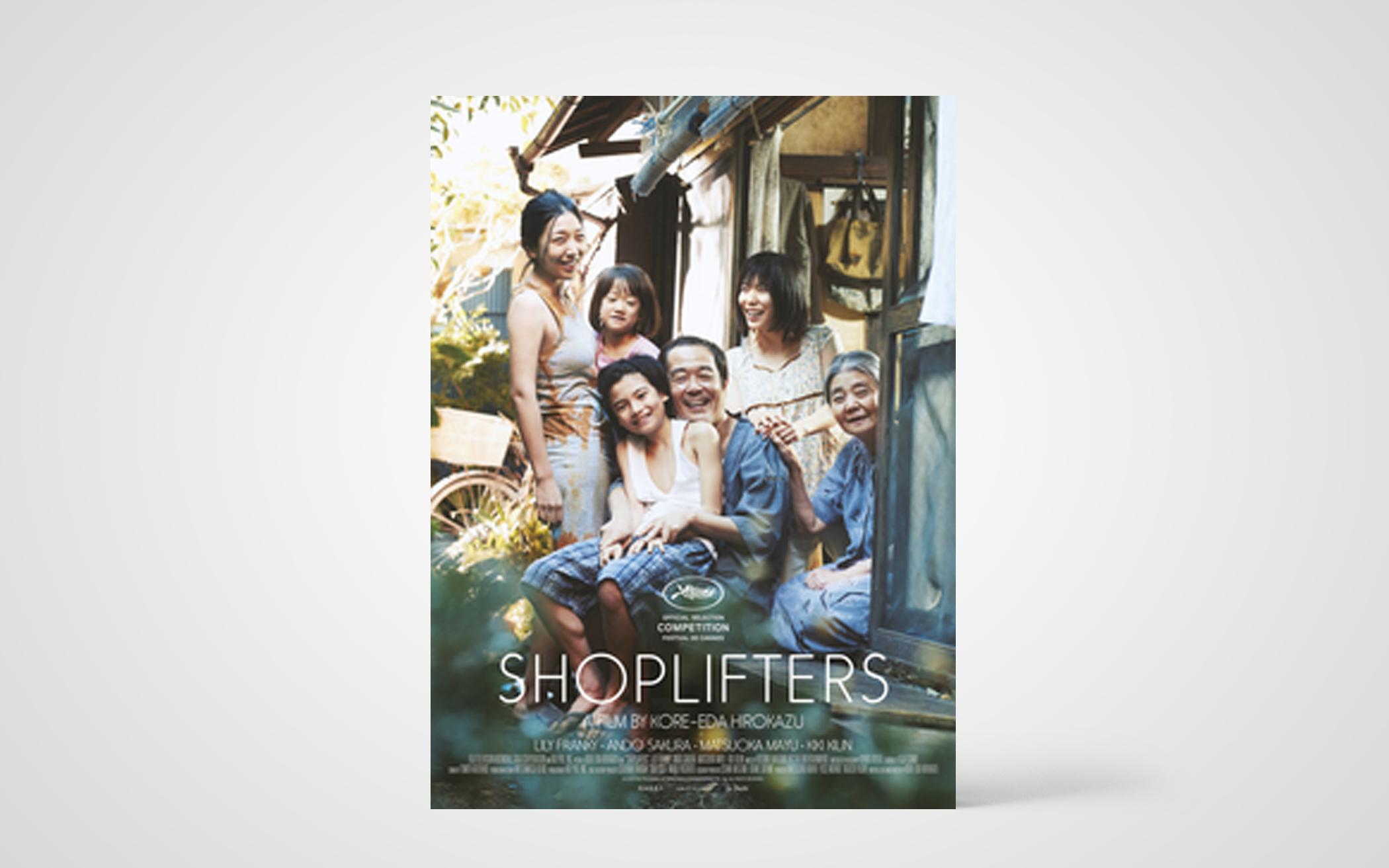Shoplifters is a long (120 minutes), messy, and unexpected film. It has been a blockbuster in its native Japan, a Palme d’Or winner at Cannes, and a nominee for Best Foreign Language Film at both the Golden Globes and the Academy Awards. Japanese director Hirokazu Kore-eda is known for capturing moments and detail, and his latest film does both.
Set in modern-day Tokyo, the story takes us into the forgotten corners of the city center where we meet a family of sorts: grandmother Hatsue, daughter Osamu, son-in-law Nobuyo, and two children. They are not related by blood, but by something stronger and perhaps more precious. It quickly becomes apparent that this family does not live by the laws of the country but rather by their own honed trade and tradition. The film opens with the family taking in a child that seems to have been abused and abandoned by her parents. This little girl quickly learns the fine tricks of the shoplifting trade. And she learns about love.
The somewhat slow beginning allows the movie to build the layers of the relationships. Kore-eda invites the viewer into the family’s close quarters, right down to the nitty gritty of the food and the filth. As the film draws to a close the viewer is caught in the web, wondering how love can grow in the company of lawlessness.
This film is the last for veteran Japanese actress, Kirin Kiki, who plays the grandmother. She passed away after this film’s completion at the age of 75. Mark Schilling, in The Japan Times, called her “everyone’s favorite Japanese grandmother” because she has played a grandmother in so many roles, starring in six other Kore-eda films. (Magnolia Pictures)
About the Author
Jenny deGroot is a freelance media review and news writer for The Banner. She lives on Swallowfield Farm near Fort Langley B.C. with her husband, Dennis. Before retirement she worked as a teacher librarian and assistant principal.

